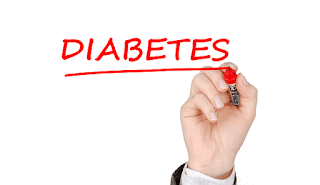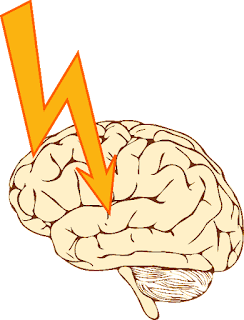How does fasting increase physical and mental efficiency well the answer is ketosis. in this article we're going to look at ketosis and the ketogenic diet and wine has become such a hot topic in the wellness industry. also we're going to give you five amazing benefits of following a keto diet.
Ketosis
to understand ketosis you first need to understand
a bit about how our bodies normally work. it might be a bit complicated but bear
with us as you might know the main fuel of our body is glucose. this glucose is
primarily acquired from the food that we eat carbohydrates in particular. this
glucose is used up by the cells of our body and the excess glucose either gets
converted into glycogen or fat inside our livers.
glucagon
inside is
the hormone that facilitates this conversion another hormone called glucagon.
converts this glycogen back into glucose that is then utilized by the cells of
our body for energy when needed. now these glucagon reserves are not limitless
and they get depleted in about 14 hours without exercise after 2 hours of
moderate exercise.
if no carbs are taken during that time. so what happens when we don't give our bodies any glucose. the body doesn't wait around for us to consume glucose. otherwise we would die sooner without food than we do. well, luckily for us we have saved up some cash for difficult times the fat.
when we don't provide our bodies with glucose our hybrid bodies shift on ketones as their primary fuel and start burning those instead and where do these ketones come from you may ask. well, the glycerides in the fat cells are converted into ketones. the transfer of power from glucose as the primary fuel to ketones as primary fuel takes some time and you might experience some turbulence.
but once it is there then surprisingly enough our minds and bodies start performing better it's like our bodies were running on junk all this time. that's why athletes and marathon runners shift a ketogenic diet that promotes ketosis in the bodies and that improves their performance and can make them run for longer.
many people
are sceptical about the ketogenic diet saying that it is an unnatural state
that is triggered only during starvation. so actually that is the default state
that we were born with. a study found that babies are born with unusually high levels
of ketones and unusually lower levels of glucose.
ketogenic diet
so even in our in fancy we were heavily reliant on ketones for energy. the primary triggers of ketosis are the ketogenic diet starvation and long periods of fasting the ketogenic diet is a kind of diet in which you all but get rid of carbohydrates from your diet. by doing that you force your body to use ketones for energy instead. people say that we can run on proteins and fats just fine.
but a small amount of carbohydrates is still needed
as our red blood cells can't run on ketones and need glucose instead. a typical
ketogenic diet consists majority of healthy fats around 50 to 60 percent sufficient
proteins around 35 to 40 percent in the rest carbs.
how to know if you've entered ketosis or not
you may have started your ketogenic diet in the morning
and then you may start wondering as we all do whether you've entered ketosis or
not before night time just like we checked the mirror after spending a day in
the gym i hate to break it to you.
but life doesn't work like that you'll need to
follow the ketogenic diet for several days before you can expect to see results.
best way to know if you've entered ketosis or not is to check your urine or blood
to see ketone levels. if your blood ketones are between 0.5 to 3 mill moles per
liter then you've entered ketosis.
if you don't
have access to a urine testing kit then you should look out for the following
signs to know whether you've entered ketosis - 1. a bad breath - not if you
haven't brushed for a while. the bad breath is due to a ketone called acetone. 2. headache, 3. nausea, 4. loss of appetite. now that
we know what ketosis is and how a ketogenic diet works. it is time to look at
some key benefits that you can get from this kind of diet.
No 1. weight loss
this sounds counterintuitive doesn't it most of us
believe that to lose weight you have to cut off any and every source of fat
from our diet and instead turn to green leafy stuff although there's no denying
the many benefits of green vegetables. fat is not entirely to blame for obesity
or weight gain.
unhealthy fats like trans fat can lead to weight gain. but our body needs healthy fats called the essential fats. to perform at optimum levels. as only now we are finding out that it is not essentially fat. but the access of carbohydrates and sugar that are the main culprit behind weight gain and obesity. if you want to find out more about carbohydrates or sugars in particular are the main culprit behind weight gain.
as we were saying it has been observed that a ketogenic
diet can promote weight loss. the researchers attribute two characteristics of
a ketogenic diet to this effect. one is the increased metabolic rate and the
other is loss of appetite.
when we're low on carbs our bodies shift ketones
for energy. since these ketones are produced through the metabolism fatty acids
over time it can lead to weight loss. also since people following a ketogenic
diet experience a loss of appetite due to ketosis and also due to the bulky
foods of a ketogenic diet. this can also contribute to weight loss.
No 2. type 2 diabetes
the ketogenic diet is also considered to be an effective
strategy for blood sugar management. especially for people with type 2 diabetes.
this again can be tracked back to the lowering of blood glucose levels in
ketosis. one thing that can interfere with taking full advantage of a ketogenic
diet is the difficulty of actually following it for a long enough time.
since it is
very difficult to say goodbye to carbs. it's like you're starting a whole
different life all of a sudden. so this might not be a beneficial strategy in
the long run also note that a ketogenic diet can also lead to hypoglycaemia low
blood sugar levels. so if you are considering shifting to a ketogenic diet and
you have blood sugar problems then it might be best to first consult your
doctor.
No 3. ketosis can reduce seizures
The epilepsy seizures can vary in intensity from mild to intense self-hurting movements. most people with epilepsy manage their seizures through medication which is not a suitable form of treatment at all. since it is ineffective for 30 percent of patients according to the epilepsy foundation.
a keto diet
might be an effective strategy to manage seizures, many studies have already
been conducted on the subject and they suggest that a keto diet can significantly
reduce seizures. this diet is mostly used for children and for people that do
not respond to other forms of treatment, since it can be difficult to follow
this diet.
No 4. can improve brain function
we quoted plato at the start of the article saying
that he fasted for better physical and mental efficiency. but does a ketogenic
diet help to increase mental efficiency, it seems that it does many people have reported time and again about the mental benefits of
prolonged fasting about the mental clarity that they achieve after only three
days of fasting.
this effect can be accredited to the ability of
ketones to strengthen the brain and nerve cells. this makes a keto diet a viable
option for someone with a neurodegenerative disease like Alzheimer’s disease.
No 5. lowers cholesterol levels
a ketogenic
diet can reduce the levels of bad cholesterol and triglycerides in the blood
and can increase the levels of good cholesterol. what are good and bad
cholesterols you may ask? well the cholesterols that can stick to walls of
your arteries are the bad cholesterol aka low density lipoproteins or ldl and
the cholesterol that is beneficial for us is the good cholesterol aka high density
lipoprotein or hdl.
this effect
is supported by many studies a 2017 review that focused on animal and human
studies. on the keto diet found that some people experienced a drop in levels of
total cholesterol. bad cholesterol and triglycerides with a subsequent increase
in levels of good cholesterol. the results of these kinds of studies are very
encouraging.
but there's a disclaimer the cholesterol lowering effects can only be accomplished by consuming good quality fat from plant and animal sources not the trans fat that is high in ldl or bad cholesterol. final thoughts the ketogenic diet is increasingly being studied and is being adopted by many people around the world. can we blame them i mean the benefits are just that amazing.
however to fully enjoy these benefits consistency is the key. the sources of fat also need to be clean and healthy. otherwise you'll just end up piling up bad cholesterols and a lot more fat than you burn. also a ketogenic diet is not for everyone. it can lead to certain annoying short-term problems like headaches, bad breath and stomach problems and certain long-term problems like kidney stones, nutrient deficiency and increased levels of bad cholesterol. so before setting out on the journey of ketosis consult your doctor first.




